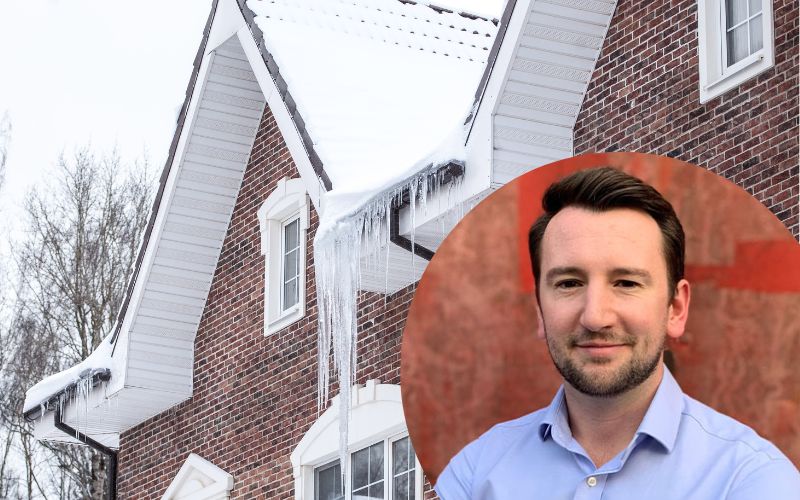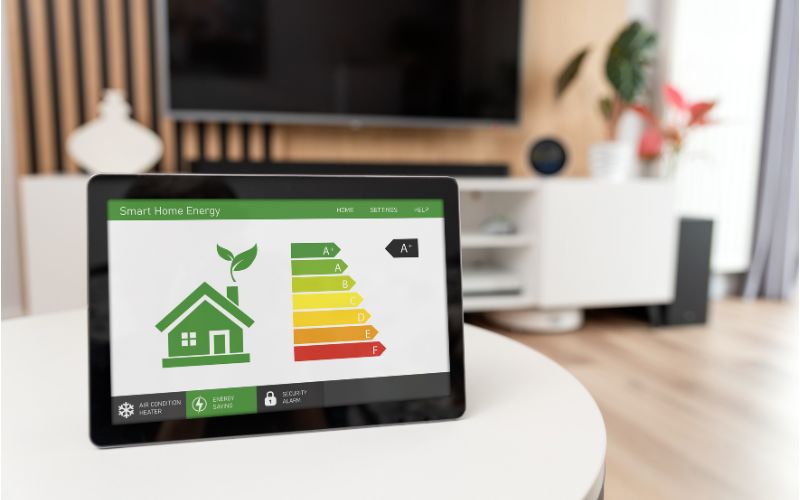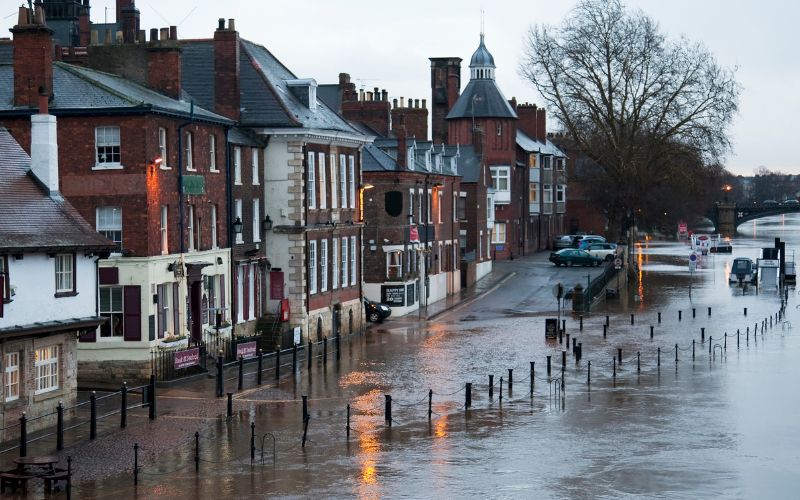Ever looked at your energy bills and wondered, how am I spending so much? Well, a huge part of the cost comes down to the condition of your building.
Older properties and those with a low EPC rating are the biggest offenders, as well as houses in poor condition.
Homeowners' priority
So, what is this small act? Prioritising energy efficiency. Beyond the positive impact on the planet, prioritising energy efficient upgrades can translate into substantial savings for homeowners.
From switching out lightbulbs for LED alternatives to ensuring your home is properly insulated, it doesn’t take much to upgrade your home and make it more energy efficient.
It’s good to note that the number of upgrades your property might need, and the type of upgrades it requires, will vary from property to property.
However, for those looking to cut costs, remember: the more energy efficient your home is – the less you spend on energy bills.
Hidden costs of poor energy efficiency
Inefficient homes often struggle to maintain consistent indoor temperatures, which can lead to discomfort.
Poor insulation and draughty windows can result in cold spots during winter and hot spots during summer, making it challenging to create a comfortable living environment.
Unstable indoor temperatures mean that there’s an increased reliance on heating and cooling systems.
The quality of indoor air is closely tied to a home's energy efficiency. For example, poor ventilation and inadequate insulation can lead to a build-up of pollutants, allergens, and mould.
Compromised indoor air quality poses health risks, particularly for individuals with respiratory conditions such as asthma. Prolonged exposure to these types of living conditions can result in respiratory issues, allergies, and other health concerns.
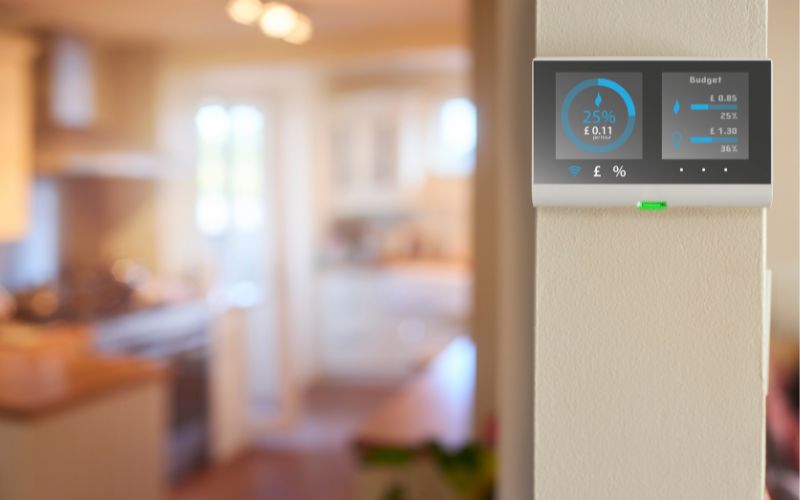
Additionally, the value of your property can be affected by its energy efficiency. As energy efficiency becomes a key consideration for homebuyers, those looking to invest in a property are increasingly prioritising eco-friendly and cost-effective homes.
A poorly insulated or inefficiently designed house may linger on the market for longer periods and face challenges in terms of resale value.
As stated above, one of the most immediate and tangible effects of poor energy efficiency in a home is the significant increase in energy bills.
Inefficient houses require more energy to maintain comfortable temperatures, leading to higher heating and cooling costs.
Draughty windows, poorly insulated walls, and inefficient HVAC systems force homeowners to rely more heavily on energy-consuming appliances, resulting in a continuous drain on finances.
How to tell if your property needs energy efficient upgrades
Other than the final cost of your combined energy bills, your home’s EPC rating is a good indicator of how energy efficient your property is.
All properties must legally have an EPC rating. Not only do they tell a lot about how efficient your property is to run, they also include recommendations on how to improve your building’s energy efficiency.
professional energy audits conducted by certified assessors can identify specific areas for improvement. These audits assess insulation, air leaks, and the efficiency of heating and cooling systems.
A chartered building surveyor will also be able to conduct a level 2 or a level 3 building survey and identify areas for improvement, including defects such as leaks and insufficient insulation.
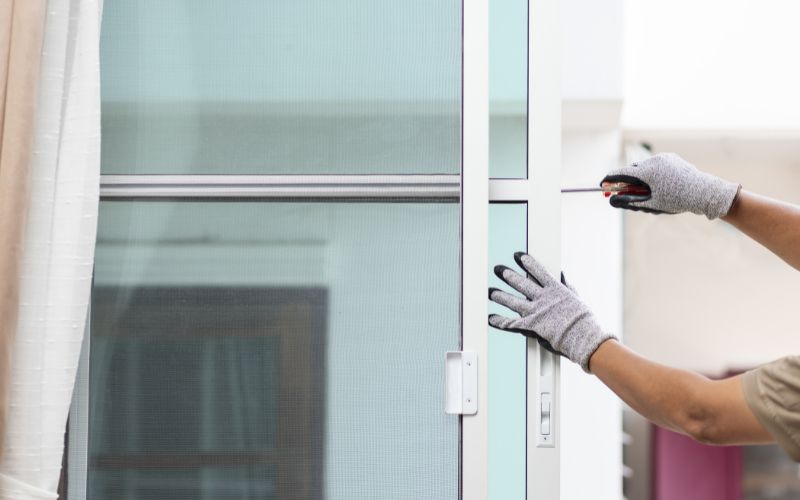
Top ways homeowners can make their property more energy efficient
Ensuring your home has proper insulation is fundamental to maintaining a consistent indoor temperature. This reduces the need for excessive heating or cooling, thereby lowering energy consumption.
Homeowners should consider upgrading to energy-efficient appliances to significantly reduce electricity consumption. This includes energy-efficient lighting, refrigerators, washing machines, and HVAC systems.
Landlords who also embrace smart home technology can monitor and control their property’s energy usage. Smart thermostats, lighting systems, and energy management apps provide real-time insights and enable better control over energy consumption.
Who are we?
Our team of Chartered Building Surveyors work closely with estate agents, landlords, lenders and local authorities across London and the South Coast to proactively navigate a changing horizon. From ensuring new projects are delivered on time and in budget, to delivering upgrades on behalf of councils.
Read more about our solutions here:
Reinstatement Cost Assessments
Planned Preventative Maintenance
Alternatively, email us at enquiries@sillencehurn.co.uk or call our Southampton team on 02380 014786 or London at 020 3143 2128.
If you're looking for the next steps in your career why not check out our latest opportunities and see if we align with you and your values!


